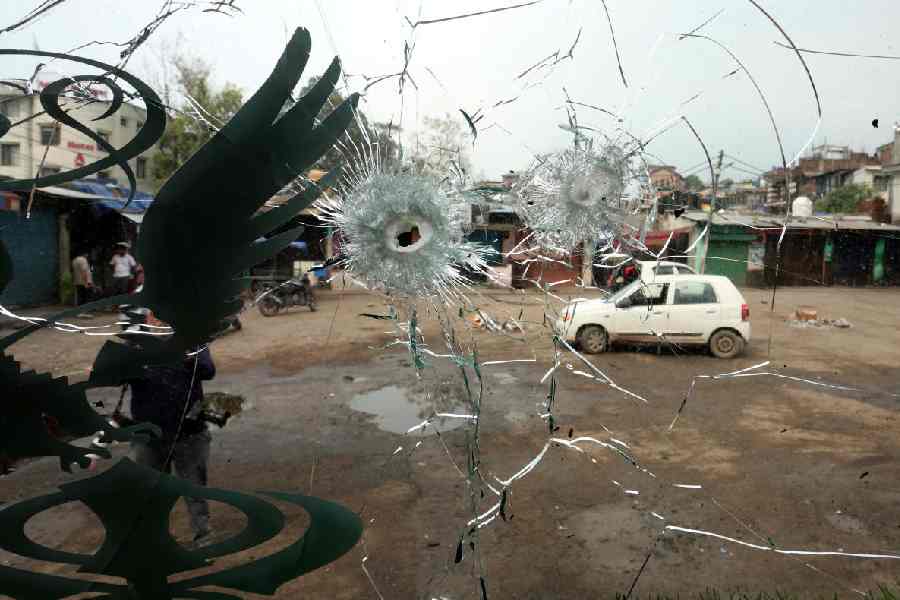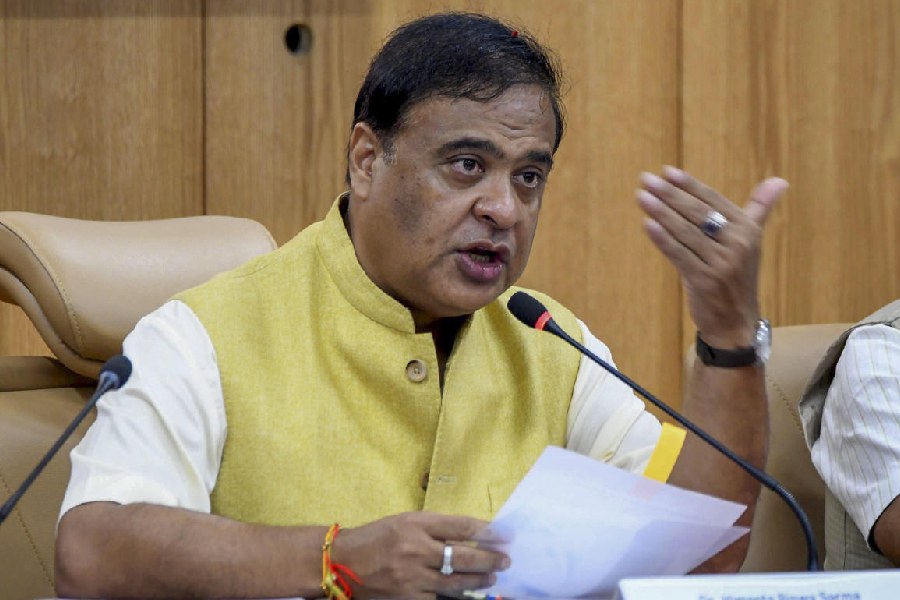India on Friday accused Pakistan of targeting its “cities and civilian infrastructure” apart from military establishments at 36 locations the previous night with missiles and “Turkish” drones, which were “effectively repulsed”.
It also said Pakistan continued shelling Jammu and Kashmir’s border areas.
Thousands of people living near the Line of Control in three border districts of Kashmir have been evacuated following heavy shelling by Pakistani troops. Many residents of Baramulla, Kupwara and Bandipora districts have been shifted to bunkers or other locations, officials said.
The government admitted to an undisclosed number of army casualties while saying India had responded “proportionately, adequately and responsibly”, causing “major losses” to Pakistan and destroying an air defence radar.
A defence ministry statement said: “Alarmingly, Pakistan kept its civil airspace open during the assault, endangering civilian flights.”
Foreign secretary Vikram Misri told a news conference: “These provocative and escalatory actions taken by Pakistan last night were targeted at Indian cities and civilian infrastructure in addition to military establishments. Indian armed forces responded proportionately, adequately and responsibly.”
Wing Commander Vyomika Singh told the news conference that Pakistan had on May 8-9 night carried out “large-scale violations of Indian airspace, attempting to target military infrastructure with 300-400 drones across 36 locations from Leh to Sir Creek”.
“Indian forces neutralised many using kinetic and non-kinetic means,” Singh added.
“The possible purpose of these large-scale aerial intrusions was to test air defence systems and gather intelligence. Forensic investigation of the wreckage of the drones is being done. Initial reports suggest that they are Turkish Asisguard Songar drones.”
The Songar is Turkey’s first indigenously developed armed drone system, produced by the Ankara-based defence company Asisguard, sources said.
Colonel Sofiya Qureshi told the news conference that an armed UAV had attempted to target the Bhatinda military station but was detected and shot down.
“In response to the Pakistani attack, armed drones were launched at four air defence sites in Pakistan. One of the drones was able to destroy an air defence radar,” she said.
India, she said, also responded strongly to Pakistan’s ceasefire violations across the LoC.
“Pakistan also carried out artillery shelling across the Line of Control using heavy-calibre artillery guns and armed drones which resulted in some losses and injuries to Indian army personnel. Pakistan army also suffered major losses in Indian retaliatory fire,” she said.
Responding to a question at the media briefing on how India would respond to Pakistan’s latest attacks, Misri said the action taken by New Delhi had been “responsible and sufficient”.
Sources said India had activated its air defence network, including S-400 Triumph systems, Barak-8 and Akash missiles, and the DRDO’s anti-drone technologies.
They said eight missiles were fired from Pakistan towards Kashmir and they were all “intercepted and blocked by air defence units”. The attacks, they said, were directed at the towns of Satwari, Samba, Ranbir Singh Pura and Arnia.
India had on Thursday hit Pakistani air defence radars and systems at several locations, including Lahore, hours after thwarting Pakistan’s attempted strikes on 15 Indian military installations.
New Delhi had said the air defence system in Lahore was “reliably learnt to have been neutralised”.
India had struck nine terror bases in Pakistan and PoK in the early hours of Wednesday in retaliation to the Pahalgam terror attack that killed 26 people.
PM meet
Prime Minister Narendra Modi on Friday chaired a high-level meeting with the three service chiefs (army, air force and navy), defence minister Rajnath Singh and national security adviser Ajit Doval to “strategise over the future course of action”.










